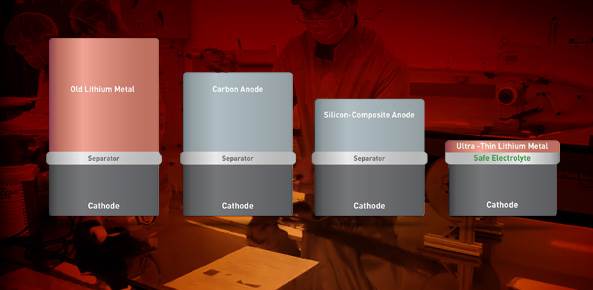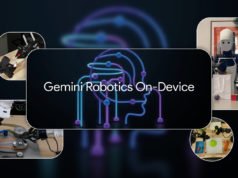
Are you ready for a smartphone battery that lasts twice as long as your current one? According to researchers, that battery is coming. MIT News reported this week that a new kind of lithium battery is on the way to being commercialized.
Called lithium metal batteries, they can reportedly pack the same energy as standard lithium-ion cells in half the size — or put twice as much energy (and therefore staying power) into a battery the size of a standard lithium ion battery. The battery was developed by Massachusetts Institute of Technology spin-off SolidEnergy.
Research has been going on for some time into a way to create a battery that uses lithium metal instead of carbon anode, according to SolidEnergy CEO Qichao Hu. But the problem has been the increased resistance and dendrite filaments that form on the battery’s anodes, a problem that causes a battery to overheat and eventually short-circuit.
Investors Are Interested
Initially, Hu developed a thin lithium metal foil anode that cut down on battery size, but wouldn’t work unless the battery was heated up to 175 degrees Fahrenheit. To get around that, Hu and his team came up with a solid electrolyte coating for the lithium metal foil that works at room temperature, along with a non-flammable liquid electrolyte with less resistance — meaning it won’t create dendrites when it reacts with the lithium metal.
In October, SolidEnergy demonstrated the first-ever working prototype of a rechargeable lithium metal smartphone battery with double energy density, which led to an influx of more than $12 million from investors. The battery the company developed is half the size of the lithium ion battery used in an iPhone 6, offering 2.0 amp hours, compared with the lithium ion battery’s 1.8 amp hours.
Drones Come First
SolidEnergy aims to bring the batteries to smartphones and wearables in early 2017, and to electric cars in 2018. If the company’s research proves consistently applicable, it could mean electric cars using the tech could go twice as far with the same size battery. But the first stop for the batteries will be drones, probably this fall, according to the company.
“Several customers are using drones and balloons to provide free Internet to the developing world, and to survey for disaster relief,” Hu said in a statement. “It’s a very exciting and noble application.”
Another MIT spinoff, A123 Systems, which ultimately filed for bankruptcy protection, failed to come up with an improved battery technology. But Hu said through MIT’s connections his group was able to use A123’s former facility in Waltham, Mass. as well as its resources to focus on commercial applications.
“By starting with this real-world manufacturing perspective and building real-world batteries, we were able to understand what materials worked in those processes, and then work backwards to design new materials,” Hu said. SolidEnergy now works out of its own facility in Woburn, Mass.





